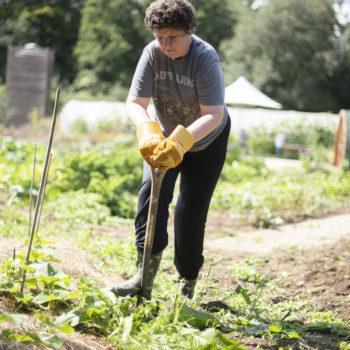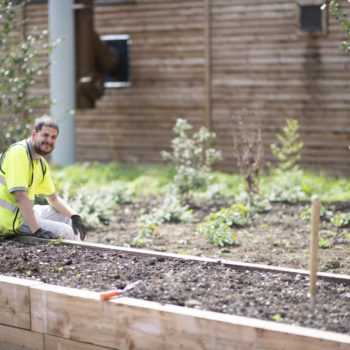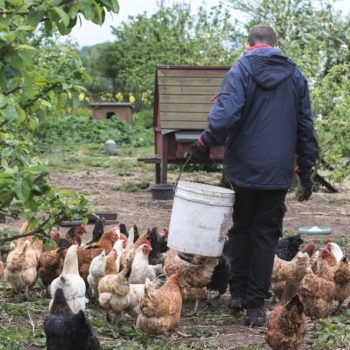Nature is more than just a peaceful setting—it’s a powerful tool that supports people’s health, independence and wellbeing. At Camphill Village Trust, we see the difference every day in the lives of the adults we support through our Nature-Based Therapies and Skills Programmes.
Backed by growing evidence, this approach is helping adults with learning disabilities, autism and mental health problems live more connected, confident and fulfilling lives.
Nature supports better mental health
Spending time in nature helps people feel calmer, less anxious, and more emotionally balanced.
According to the Green Social Prescribing Project, time outdoors can lift mood and improve overall happiness. For people with mental health problems, nature-based activities lead to major improvements in wellbeing—including better emotional regulation and lower stress levels.
It helps people focus and think more clearly
Being in natural surroundings helps reduce overwhelm and mental fatigue.
This is especially important for people with learning disabilities, who may experience challenges with focus, memory or overstimulation. Green spaces provide a calm environment where people can think more clearly and engage more confidently (University of Essex study).
It offers unique support for people with autism
For people with autism, nature provides a sensory-rich but gentle experience.
The calming sounds, natural textures and soothing rhythms of activities like gardening or animal care can reduce sensory overload, increase focus and build self-confidence. These environments help autistic adults feel more at ease and more able to take part fully in everyday life (NeuroLaunch).
It builds confidence, skills and independence
Practical outdoor tasks—such as growing food, caring for animals or helping in a café—offer meaningful ways to learn new skills (University of Essex study).
As people take part in these routines, they gain a stronger sense of purpose and achievement. It’s not just about getting active—it’s about feeling proud, valued and more independent.
Nature strengthens social connection
Spending time outdoors with others can reduce loneliness and build friendships (University of Essex study).
Group activities on the land or in the garden naturally create chances to connect—whether it’s planting side by side, feeding the goats, or sharing a harvest.
It supports physical health, too
Many nature-based activities involve gentle movement—digging, planting, walking, or lifting.
This keeps people active and helps improve mobility, stamina and energy levels. Research shows that being outdoors often encourages people to move more and feel more motivated.
It provides freedom from daily stress
Daily life with a disability can often include extra planning, support needs, and routines.
Natural England’s 2022 report Included Outside highlights how time outdoors offers a rare sense of freedom and escape from everyday demands.
“There can be particular value in the feeling of freedom and sense of getting away from everyday demands that can come from being in natural environments.”
(Natural England, 2022)
It’s a reminder that nature isn’t just beneficial—it’s essential to a more balanced, healthy life.
Why we take a nature-based approach
At Camphill Village Trust, we’ve woven nature into every part of our support offer. Through our Nature-Based Therapies and Skills Programmes, adults with learning disabilities, autism and mental health problems take part in gardening, farming, animal care and creative activities.
These are not just hobbies—they’re proven pathways to better mental health, stronger relationships, increased confidence, and a greater sense of independence.
The evidence is clear: nature helps people thrive.
Find out more about our approach and programmes.









